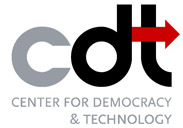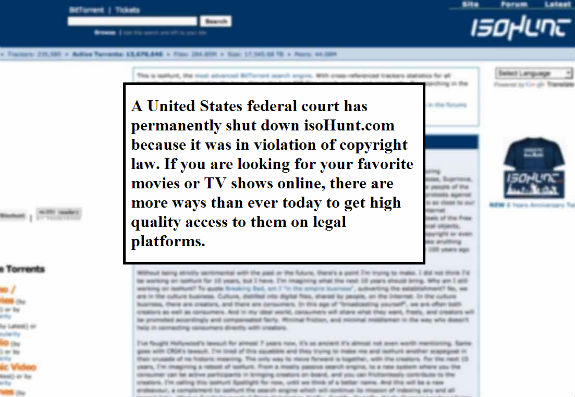Amazon to Lawmakers: Keep the Internet Open & Limit Copyright Excesses
mercredi 20 novembre 2013 à 17:55 A hearing before the U.S. House of Representatives Subcommittee on Courts, Intellectual Property and the Internet has heard opinions from leading content providers and technology advocates on how best to progress online digital distribution.
A hearing before the U.S. House of Representatives Subcommittee on Courts, Intellectual Property and the Internet has heard opinions from leading content providers and technology advocates on how best to progress online digital distribution.
The Rise of Innovative Business Models: Content Delivery Methods in the Digital Age heard testimony from Amazon, the MPAA, the Center for Democracy and Technology, and PreEmptive Solutions, an anti-piracy and reverse engineering mitigation company.
John McCoskey, Executive Vice President and Chief Technology Officer at the Motion Picture Association of America, began with an overview of how video content is currently being consumed. No longer are people simply sat in a theater or in front of a TV.
“Nearly 42 million homes in the United States now have any number of Internet-connected media devices, including game consoles, smart TVs, and online set-top boxes. More than 90 legitimate online services are already enabling those homes to download or stream movies and TV shows, offering a service for every type of content consumer out there,” McCoskey said.
 He went on to speak of MPAA member companies embracing portability and flexibility so that viewers can “watch what they want, when they want, where they want.”
He went on to speak of MPAA member companies embracing portability and flexibility so that viewers can “watch what they want, when they want, where they want.”
This innovation, McCoskey said, is a testament to a robust copyright regime that encourages the creation and delivery of content, adding that working together to crack down on infringement will be of benefit to all.
“We all share a responsibility to curb abusive practices online that stunt investment in content, hurt the rapidly evolving digital marketplace, and harm the interests of consumers who benefit from these innovations. That means finding ways of working together in good faith on voluntary solutions where everyone shares in the responsibility of creating a healthy digital marketplace for the exchange of ideas, goods, and services; one that promotes creativity, investment, innovation, and job creation,” McCoskey explained.
Also speaking at the hearing was Paul Misener, Amazon.com’s Vice President for Global Public Policy. He began with a brief history of his company and how it has developed from an Internet-based distributor of physical goods into one increasingly supplying digital products online.
“The content is the same, of course: digital bits that, once delivered, various electronic devices can convert into text, sounds, and images. And so our digital delivery business today is a natural continuation of our origins as a place where customers can find and discover content they want to buy online,” Misener said.
 In common with the MPAA, Misener said that Amazon also recognizes the importance of supplying content for consumption on a wide range of platforms, but unlike their movie industry counterparts the company had a warning concerning unnecessarily tough copyright law and punishing damages for infringement.
In common with the MPAA, Misener said that Amazon also recognizes the importance of supplying content for consumption on a wide range of platforms, but unlike their movie industry counterparts the company had a warning concerning unnecessarily tough copyright law and punishing damages for infringement.
“The risk of exorbitant statutory damage awards that the current system allows could chill the development of new products and services designed to help consumers enjoy copyrighted works,” Misener said.
“It may make sense to limit the availability of statutory damages in certain situations, such as where the defendant acted with a good faith belief that its use of copyrighted works was non-infringing or fair, or where the outcome turns on a novel question of law.”
After noting that digital music distributors have to negotiate a tough path to offering official content due to the lack of centralized information on music creators/publishers and no system for blanket licensing, Misener moved onto perhaps the most important issue of all – the preservation of the Internet itself.
“Continued growth and innovation in digital content delivery assumes that the Internet will remain a non-discriminatory, open platform, where bits are bits and arbitrary limits do not
inhibit consumer access to content. Consumer choice, without impairment, must be preserved,” Misener concluded.
The importance of giving customers what they want was later underlined by David Sohn, General Counsel and Director at the Center for Democracy & Technology. The success of iTunes proves that it is indeed possible to “compete with free” as long as services offer great choice and are easy to use. Failure to do so, Sohn said, can result in consumers making other choices.
 “If lawful services fail to give consumers what they want, when they want it, unlawful sources will be out there, waiting to fill the gaps and satisfy the unmet demand.
“If lawful services fail to give consumers what they want, when they want it, unlawful sources will be out there, waiting to fill the gaps and satisfy the unmet demand.
“In a world in which information technology has made incredibly powerful tools for copying and disseminating data cheap and ubiquitous, no amount of wishing and no enforcement strategy will be able to fully eliminate unlawful sources of copyrighted material,” Sohn warned.
When considering reform of copyright law, Sohn said that Congress should keep in mind that the best defense against widespread infringement is via a “robust and evolving content marketplace” that satisfies consumer demand via convenient and attractive alternatives to piracy.
The key to that, he said, is by recognizing the importance of existing innovation-boosting elements in current law – the safe-harbor provisions of the DMCA, the “Sony doctrine” concerning products with substantial non-infringing uses, and fair use.
“Continued innovation and development in the online content marketplace would suffer greatly if Congress were to narrow or otherwise undermine any of these three legal principles,” Sohn said.
With technology companies and advocates recommending a softening of statutory damages while maintaining safe harbor and the expansion of fair use, the MPAA and other entertainment companies are again finding themselves at odds with their potential distribution partners. Bridging that gap will be an important challenge in the months and years to come.
Source: TorrentFreak, for the latest info on copyright, file-sharing and VPN services.
 In 2011 Belgium was one of the first countries to implement a court-ordered Pirate Bay blockade.
In 2011 Belgium was one of the first countries to implement a court-ordered Pirate Bay blockade. In 2004 during some of the early days of the Swedish BitTorrent scene, a new private tracker appeared online. Swebits maintained a membership of up to 40,000 and was very popular with locals.
In 2004 during some of the early days of the Swedish BitTorrent scene, a new private tracker appeared online. Swebits maintained a membership of up to 40,000 and was very popular with locals.



 The Public Prosecutor of Rome agreed and has now issued an order for all local Internet service providers to begin a blockade of vKontakte and several other hosting sites including Rapidgator.net, one of the largest file-hosters around.
The Public Prosecutor of Rome agreed and has now issued an order for all local Internet service providers to begin a blockade of vKontakte and several other hosting sites including Rapidgator.net, one of the largest file-hosters around.